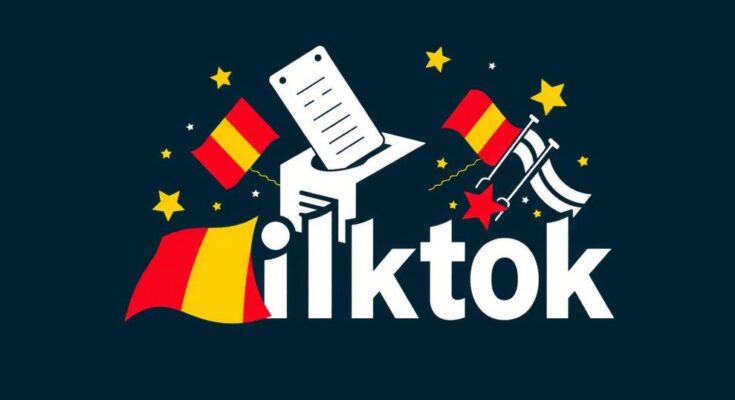TikTok is facing accusations in Romania concerning its role in the electoral success of Călin Georgescu, a far-right candidate, due to claims of algorithmic preferential treatment. Despite TikTok’s denial of these allegations, the situation raises important questions about social media’s influence on elections.
TikTok is currently under scrutiny in Romania following allegations of election interference, particularly after the unexpected victory of far-right candidate Călin Georgescu in the presidential election. The Romanian Supreme Council of National Defense stated that TikTok’s algorithm provided significant exposure to Georgescu’s content, which potentially influenced voters. Though TikTok has denied these claims, asserting that all candidates were treated equitably, the accusations have raised concerns about the platform’s role in shaping political discourse and public opinion.
The allegations against TikTok arose after Călin Georgescu, a populist aligned with Russian President Vladimir Putin, won a surprising first round against the incumbent, Prime Minister Marcel Ciolacu. Prior to the election, Georgescu’s TikTok presence surged, reportedly amassing over 100 million views on his posts. The Romanian defense council’s statement emphasized that there is an increasing interest from Russia to influence public sentiment in Romania, raising further implications about the impact of foreign meddling through social media platforms like TikTok.
In summary, TikTok’s alleged interference in Romania’s presidential election reflects broader concerns regarding the influence of social media on political events. The Romanian government has called attention to the platform’s role in amplifying certain candidates, leading to calls for careful scrutiny of digital media’s capacity to shape electoral outcomes. As the situation unfolds, it is crucial to monitor how such platforms are regulated to maintain electoral integrity.
Original Source: www.businessinsider.com




